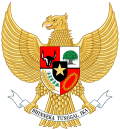Further reading
- Torgersen, Mayumi (1997), "Orang Indonesia di Auckland", in Yoon, Hong-key (ed.), Vietnamese, Indonesian and Hong Kong immigrants in Auckland, University of Auckland, ISBN 978-0-908672-90-5
| Africa | ||
|---|---|---|
| Americas | ||
| Asia | ||
| Europe | ||
| Oceania | ||
| Others | ||
| | This New Zealand–related article is a stub. You can help Wikipedia by expanding it. |
| | This article related to an ethnic group in Oceania is a stub. You can help Wikipedia by expanding it. |
